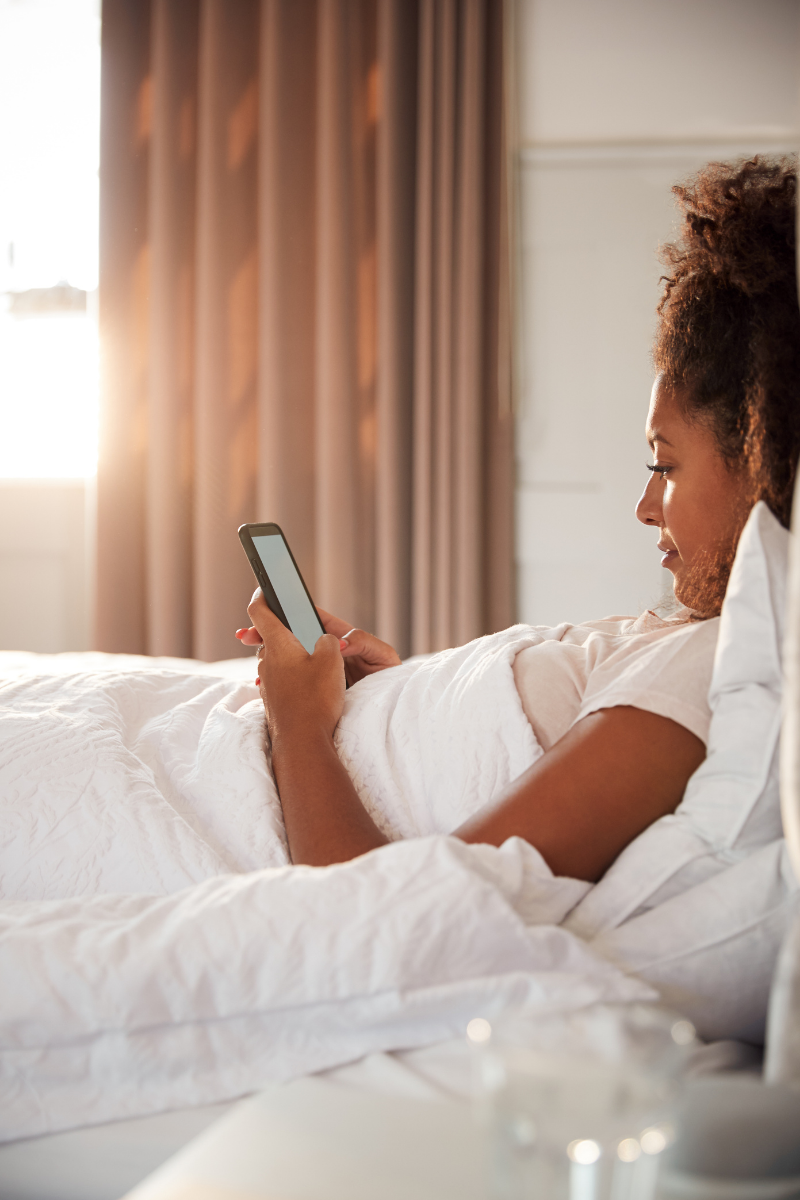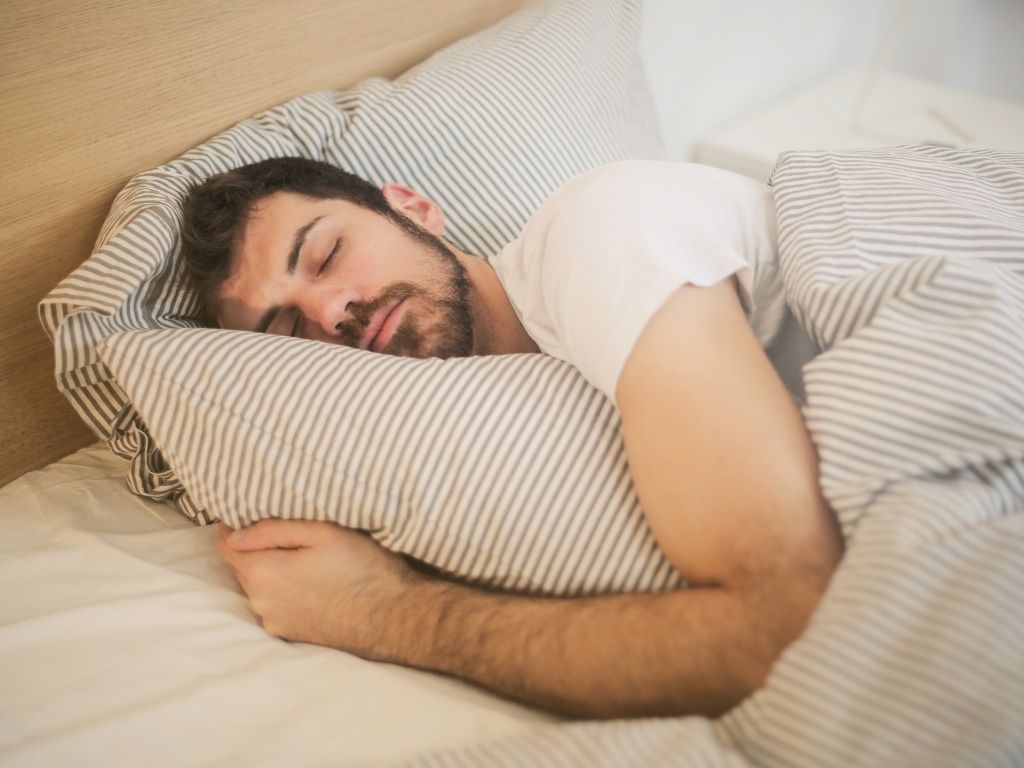Welcome to part four of our series on the PLEASE Stress Management Skills of DBT. We’ve already covered P-L-E and A in part one, two and three. We are now focusing on the last two stress management skills associated with PLEASE. These are possibly the most straightforward and obvious of the suggestions, and yet show up repeatedly in the research as two of the most important factors for regulating stress. Sleep and exercise, consistently shown to be at least as effective as medication for managing symptoms of depression and anxiety, are like two sides of a coin. One requires direct effort or it will simply not happen and the other is less likely to happen the more we try to force it.
The Stress Management Skills of DBT
For reference, the acronym is as follows:
PL – Treat Physical Illness
E– Balance Eating
A – Avoid mood-altering substances
S– Balance Sleep
E – Get Exercise
The last two skills here get no fancy revisions. Balance our sleep and get exercise. So let’s look at our sleep. Nearly everyone claims to need more sleep. There are even people who look forward to catching a cold so they can stay in bed and catch up on their sleep. Sleep is essential to our health, so why do so few of us get enough of it, and what happens to us when we don’t? According to an article on John Hopkins Medicine, “When people don’t get enough sleep, their health risks rise. Symptoms of depression, seizures, high blood pressure and migraines worsen. Immunity is compromised, increasing the likelihood of illness and infection.”
Our minds and bodies need sleep, and we all know how terrible we feel when we haven’t rested well for a few days. So why do we tend to fight against the gift of sleep? We need to pay attention to three obstacles when we are trying to improve our sleep: overworked, over-entertained, and over-caffeinated. As I said before, trying harder to sleep is a losing battle; however, we can organize our lives so that balanced sleep is more likely to occur than not.
Overworked
Whether we are talking about late nights at the office or term papers that are due by 11:59 pm, our busyness is often in direct conflict with our need for good sleep. When our time runs short, sleep is regularly the first thing to go. The reality is that not enough time to sleep is simply not enough time. Period. When we sacrifice our sleep, we sacrifice what allows us to be creative and efficient. In giving up our sleep, we give up our capacity to do our best work, and as a result, our stress and anxiety increase proportionately.
Over-entertained
 Screens. TVs, computers, game consoles, and now our phones. Screens are robbing us of untold hours of sleep. But seriously, who doesn’t love to unwind with a mindless show at the end of the day. Now, if we really could keep it to “a show,” it probably wouldn’t be much of an issue. However, if you can sit down nowadays and just watch one episode of anything, you must be some kind of a superhero. With the pressure to binge-watch season 1-10 of everything from hospitals to housewives, our brains simply don’t know how to choose sleep over stimulation. Every time we start a new episode or click a new link or play the next video, our brains get a little dopamine hit that tells us, “Oh ya, this is way better than sleep; on to season 6!” We are sacrificing our sleep for entertainment and are literally entertaining ourselves to stress. Stress management requires good sleep and good sleep requires that we turn all artificial light off. Our body’s natural circadian rhythm regulates our sleep, and light is a major cue for that rhythm and melatonin release. So if we are inundating ourselves with a constant stream of artificial light, it’s no wonder we have trouble getting to sleep once we finally power down our devices. Most sleep experts recommend having at least one hour of screen-free time before we turn in for the night.
Screens. TVs, computers, game consoles, and now our phones. Screens are robbing us of untold hours of sleep. But seriously, who doesn’t love to unwind with a mindless show at the end of the day. Now, if we really could keep it to “a show,” it probably wouldn’t be much of an issue. However, if you can sit down nowadays and just watch one episode of anything, you must be some kind of a superhero. With the pressure to binge-watch season 1-10 of everything from hospitals to housewives, our brains simply don’t know how to choose sleep over stimulation. Every time we start a new episode or click a new link or play the next video, our brains get a little dopamine hit that tells us, “Oh ya, this is way better than sleep; on to season 6!” We are sacrificing our sleep for entertainment and are literally entertaining ourselves to stress. Stress management requires good sleep and good sleep requires that we turn all artificial light off. Our body’s natural circadian rhythm regulates our sleep, and light is a major cue for that rhythm and melatonin release. So if we are inundating ourselves with a constant stream of artificial light, it’s no wonder we have trouble getting to sleep once we finally power down our devices. Most sleep experts recommend having at least one hour of screen-free time before we turn in for the night.
Over-caffeinated
 Now don’t get me wrong, I love my morning cup of coffee as much as the next person. But if sleep is our goal, we all need to be more mindful of our caffeine intake. Next time you walk into a gas station quick-stop, look around at the hundreds of options for filling our minds and bodies full of caffeine. These days Redbull barely even registers. If the beverage doesn’t sound like it can be used for rocket fuel or to remove paint from the wall, why bother. All these caffeinated options resulted as a symptom of our collective sleep deprivation and have become a significant part of the problem. The bottom line is caffeine doesn’t help us manage stress, and it actually increases our anxiety. Caffeine can make us restless and edgy and rob us of the very sleep we need to manage our stress and regulate our emotions.
Now don’t get me wrong, I love my morning cup of coffee as much as the next person. But if sleep is our goal, we all need to be more mindful of our caffeine intake. Next time you walk into a gas station quick-stop, look around at the hundreds of options for filling our minds and bodies full of caffeine. These days Redbull barely even registers. If the beverage doesn’t sound like it can be used for rocket fuel or to remove paint from the wall, why bother. All these caffeinated options resulted as a symptom of our collective sleep deprivation and have become a significant part of the problem. The bottom line is caffeine doesn’t help us manage stress, and it actually increases our anxiety. Caffeine can make us restless and edgy and rob us of the very sleep we need to manage our stress and regulate our emotions.
Here are three ideas for your own personal sleep study:
- For one whole month, commit to “no caffeine after the morning.” You can define your morning in the way that makes the most sense for you. See how you feel at the end of the month.
- Go low-tech for two weeks before bed. Read a book, listen to soothing music, have a comforting conversation, meditate, etc. And try for no screens at least one hour before bed. At the end of the two weeks, notice how you are feeling.
- Organize your schedule so you can go to bed five minutes earlier every two days for four weeks. You’ll end up going to bed over an hour earlier by the end of the four weeks. See how you feel at the end of this time period.
For more tips on organizing your life for better sleep, check out these resources from TED Sleeping with Science.
Awakened Path Counseling proudly provides quality transpersonal and traditional psychotherapy, at their offices in Middlesex County, New Jersey, and online. Their experienced therapists specialize in serving children, teens and adults. The experienced clinicians at Awakened Path Counseling are passionate about their holistic approach to mental health, addressing your emotional, cognitive, physical, and spiritual needs.


